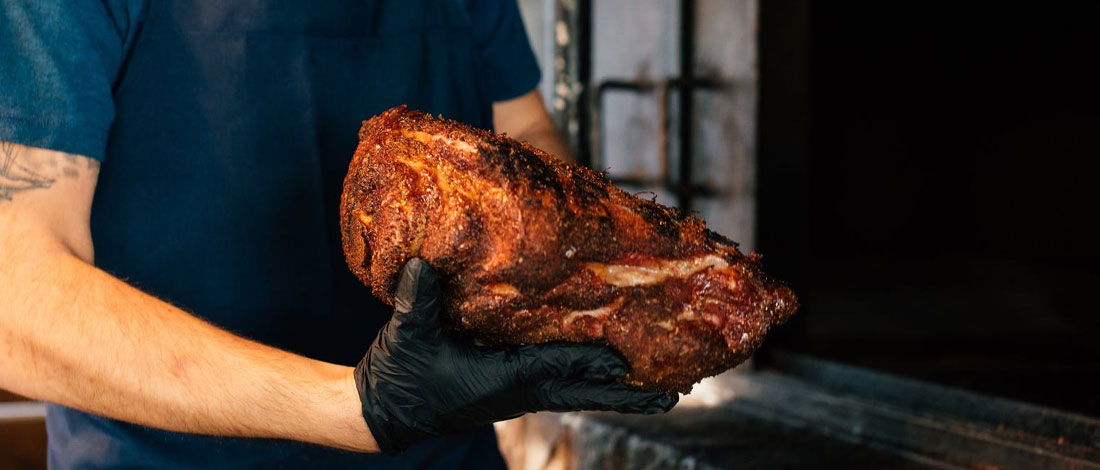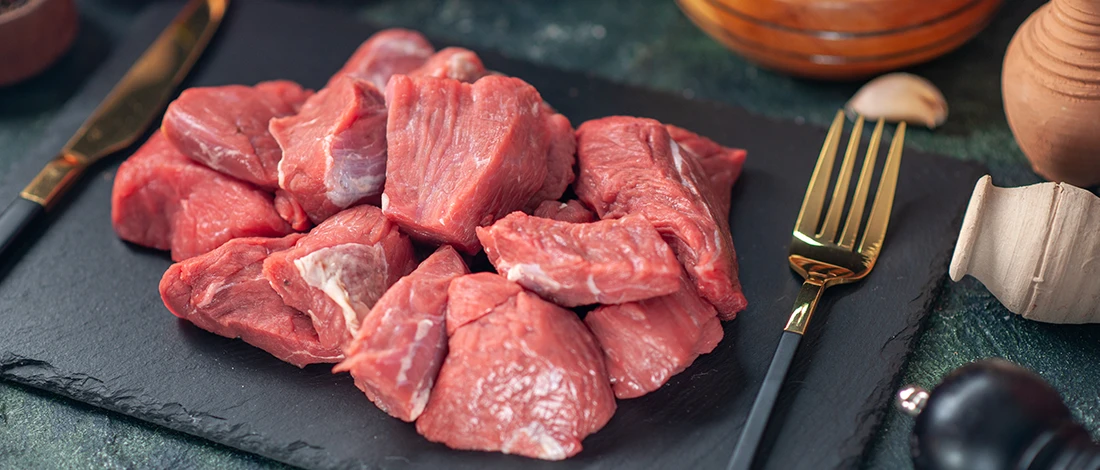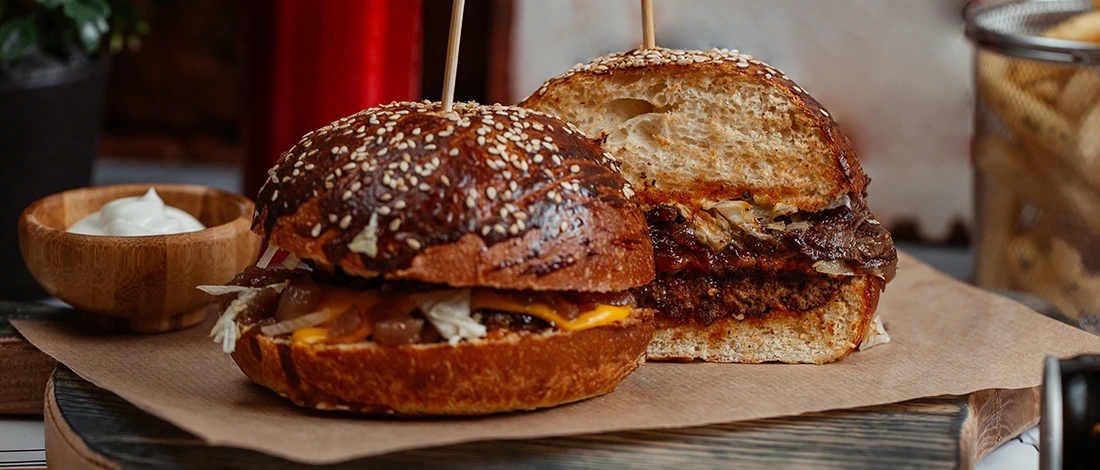It's quite possible that you enjoy eating meat, but, like many, you aren't sure of the environmental impact of the meat industry.
I had similar concerns when I transitioned to an all-meat diet five years ago, and in the meantime, I made significant efforts to get to the bottom of it.
I’ve read tons of published papers and spoken to a friend who is a conservation specialist to gain different perspectives on this.
So, let's look at how to enjoy eating meat while being conscious of climate change and the environmental impacts of our choices.
Quick Summary
- Meat production contributes to greenhouse gas emissions, with ruminant animals like cattle and sheep producing methane as part of their digestive process, and industrial meat production leading to deforestation.
- The environmental impact of meat production also includes the transportation process and the production of animal feed, with chicken, turkey, and seafood generally being more sustainable options.
- To mitigate the harmful effects of meat production, consumers can choose free-range meat, source local and fresh produce, reduce red meat intake, and avoid processed meats.
Meat Production and Greenhouse Gas Emissions
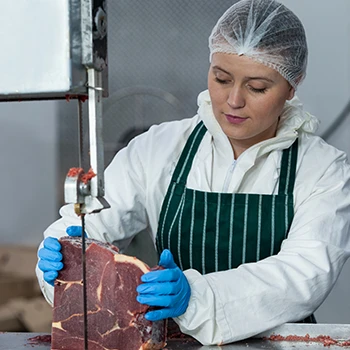
It all begins with the gases in our atmosphere that absorb the sun's heat and cause a greenhouse effect.
Carbon dioxide, nitrous oxide, methane, and other greenhouse gases are responsible for global warming and are caused directly by some of the following factors [1].
The vast majority of methane and nitrous oxide emissions in livestock farming are attributed to cattle farming.
Ruminant animals, like cattle and sheep, produce methane as part of their digestive process, and the resultant methane emissions are often cited as a significant concern in livestock farming.
This includes meat production, dairy farming, gelatine, and other agricultural uses of the animals.
The greenhouse gas emissions associated with animal agriculture are central to the argument that eating meat harms the environment. The global average human consumption of meat has rapidly increased in the past few decades.
According to the Food and Agriculture Organization of the United Nations, an average of around 23 kilograms of meat was consumed per person annually in the early 1960s.
Whereas by 2019, it was over 43 kilograms. A demand for increased meat consumption has resulted in a rise in greenhouse gas emissions.
“Methane is one of the primary greenhouse gases produced by cattle and their excreta. It is 25 times more effective at trapping solar heat in the atmosphere than carbon dioxide.”
- C. J. Neumeier & F. M. Mitloehner, Department of Animal Science, University of California
Other Harmful Effects of Meat Production
On top of the emissions produced by the animals themselves, you also have to consider the environmental impact of the animal transportation process.
Whenever possible, try to purchase meat that has not traveled far to end up on your plate.
Deforestation is another cause for concern, too. Millions of acres of U.S. forests have been destroyed for cropland to produce feed [2].
In parts of South America, slash-and-burn farming is destroying forests to produce industrial meat. Not only does this increase greenhouse gas emissions, but it reduces sources of clean air.
On the other hand, salmon and chicken meat farms produce significantly less carbon dioxide equivalents and other greenhouse gas emissions than beef.
Chicken, turkey, and seafood are generally hailed as the most sustainable options, despite needing a lot of animal feed to grow. Animal feed does have an impact on the planet too.
"When it comes to harming the environment, eating meat itself isn’t the problem. It’s the amount we eat which is the problem. Meat consumption has increased and its production on a wider scale is what causes harm to our environment and ecosystems."
- Georgina Caro, founder of Gypsy Soul
What Is the Best Way to Stop the Harmful Effects of Meat Production?

The best way to stop the harmful effects of meat production is to choose free-range meat or source local and fresh produce.
Some people choose to fight climate change by slightly reducing their red meat intake and sourcing meat locally.
However, you don’t have to give up on meat. Here’s how.
1. Go Free Range
Shopping for free-range beef from sustainable agricultural land is one of the best things we can do for our planet.
Meat produced by animals living in small spaces is linked to more methane emissions and pollution from burning fossil fuels in huge volumes.
On the other hand, raising animals with access to more land results in fewer toxic chemicals being used.
2. Source Local and Fresh Produce
Moreover, red meat that has not been imported on a ship or plane will be associated with far fewer carbon dioxide emissions.
We can all still eat meat as part of a balanced and healthy diet. We just need to be ethical and sustainable. Try to reduce food waste and compost organic materials.
Furthermore, eating fewer processed meats is good for overall global food security and reducing carbon dioxide equivalents.
Does Dairy Production Affect Climate Change?
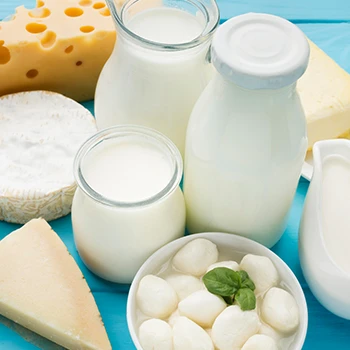
Yes, contrary to common perception, dairy production affects climate change too. While dairy products can contribute to a healthy diet, it's worth noting that diets high in dairy can also have a high carbon footprint.
In fact, many dairy products result in worse carbon emissions than poultry and pig meat production, as confirmed by the World Wildlife Fund.
More than a third of all raw materials in the U.S. is used to raise and feed animals, and fossil fuel use leads directly to carbon dioxide equivalents.
The animals most often used for dairy - cows and sheep - are big sources of carbon dioxide equivalents. Furthermore, these animals need a lot of space to feed.
The key takeaway here is that all animal products lead to increased greenhouse gas emissions and deforestation.
The choice you need to make is not between plant-based foods and animal products but between ethically sourced, sustainable foods that carry a minimal contribution to global warming.
Related Articles:
FAQs
Why is Eating Meat Bad for the Environment?
Eating meat is bad for the environment because it causes land destruction, solid degradation, biodiversity loss, and emits methane into the atmosphere. When your food is sourced from overseas, the method of transporting it to your plate produces a high level of carbon dioxide.
How Much Does Eating Meat Affect the Environment?
Eating meat in itself doesn’t affect the environment. It is the methods of farming cows and other livestock and the food production processes that impact global warming. We can all cut down on meat consumption or make more sustainable choices when doing so.
Is Meat the Worst Thing for Global Greenhouse Gas Emissions?
No, meat is not the worst thing for global greenhouse gas emissions. While raising livestock does increase the levels of methane, other factors such as air and sea transportation, heating commercial and private residences, and industrial iron and steel production are all huge sources of different greenhouse gases.
Is Eating Less Meat Better for the Environment?
Yes, eating less meat is better for the environment if your meat is produced from unsustainable livestock farming practices. Some animals, such as cattle, are known for releasing greenhouse gases into the environment. Choosing a vegetarian food product over beef from time to time could make a difference to the planet.
References:
- https://www.epa.gov/ghgemissions/overview-greenhouse-gases
- https://www.eurogroupforanimals.org/news/beef-production-drives-deforestation-five-times-more-any-other-sector

